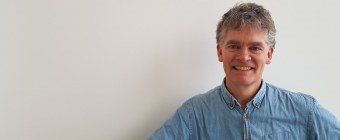Industry professionals: Sustainability should be a tender award criterion
13.03.2019
New tender models are needed to realise the UN sustainable development goals (SDGs). Models that intersect disciplines and include sustainability as a competitive parameter. This was one of the findings when the Technical University of Denmark (DTU) and COWI held a workshop on how to integrate SDGs in tender procedures. Some municipalities are already well on their way.
Fossil-free construction sites, reuse of construction waste and carbon footprint statements.
Three ideas for supplier requirements that could be useful to include when tendering construction contract works in order to bring projects closer to the UN SDGs.
These suggestions are but a small selection of the many ideas that were shared when some 80 professionals from Danish municipalities, regions, consultants, client, industries, utilities and universities attended last week’s workshop organised by COWI and DTU, “From SDGs to specific sustainability goals in tender procedures”.
“It’s so cool to see how many are truly interested and contribute to this agenda. Engineers play a vital role in realising the SDGs, but in the end, we have to join forces with a lot of other disciplines. Adjusting and developing tender models to ensure they include sustainability requirements and set the necessary frames for interdisciplinary efforts is a key place to start,” said Christian Thuesen, Associate Professor with DTU Management Engineering.
Flex your green procurement muscles
One of the workshop presenters, Sorø Municipality is among those municipalities that have really decided to steer the municipality towards sustainability by making the 17 SDGs the overall frame for the municipal vision and planning strategy.
Specifically, the municipality chose to update its procurement and tendering policy to reflect the SDGs. For instance, that means stricter requirements for reuse of materials, and to the extent possible, future tenders will integrate environmental aspects as an award criterion.
“The public sector in Denmark spends more than DKK 300 billion a year. This represents a gigantic potential for guiding the development,“ said Morten Olesen, Head of the Technical and Environmental Administration in Sorø Municipality.
How do Lykke Leonardsen, Programme Manager of Green Urban Solutions with the City of Copenhagen, and Christian Thuesen with DTU, see challenges and opportunities in relation to integrating SDGs in tender documents? Check out video below:
Sustainability as an award criterion
The workshop dealt with integration of SDGs in three concrete cases, including Aarhus ReWater, where Aarhus Vand (water and wastewater utility) is the client. The ambition is to establish the world’s most resource-efficient wastewater treatment plant that will treat wastewater generated by 480,000 persons, ensure a good marine environment, produce excess energy and nutrients to an unprecedented extent, and be a value-creating recreational area in harmony with its surroundings and neighbours.
"The participants were immensely dedicated to the cause, pitching lots of great ideas for how to incorporate sustainability in the tender phase. Input that I will include in the future dialogue with Aarhus Vand”, says Carsten Fjorback, Associate Technical Director for climate adaptation and urban development at COWI.
Helle Vang Andersen, SVP of Water and Environment at COWI, says:
"We have started a key discussion across partners and actors. I’m sure that dialogue will continue and hopefully lead to framework conditions changing and to sustainability increasingly being integrated as an award criterion when construction projects are put out to tender."
Facts about the UN sustainable development goals
The UN SDGs were adopted by state and government leaders at the UN summit in September 2015. The goals took effect on 1 January 2016 and aim to create more sustainable development for both people and the planet we live on towards 2030.
A study made by Megafon for the Danish Management Society (VL) in December 2018 revealed that 96 per cent of the company managers interviewed knew about the UN SDGs. 42 per cent was working on advancing them, but less than 18 per cent had made them an integral part of their strategy.
Get in contact

Daniel D. de la Cour
Leading Specialist
1300 Division Management, Denmark
Tel:
+45 2348 0191
dlc@cowi.com